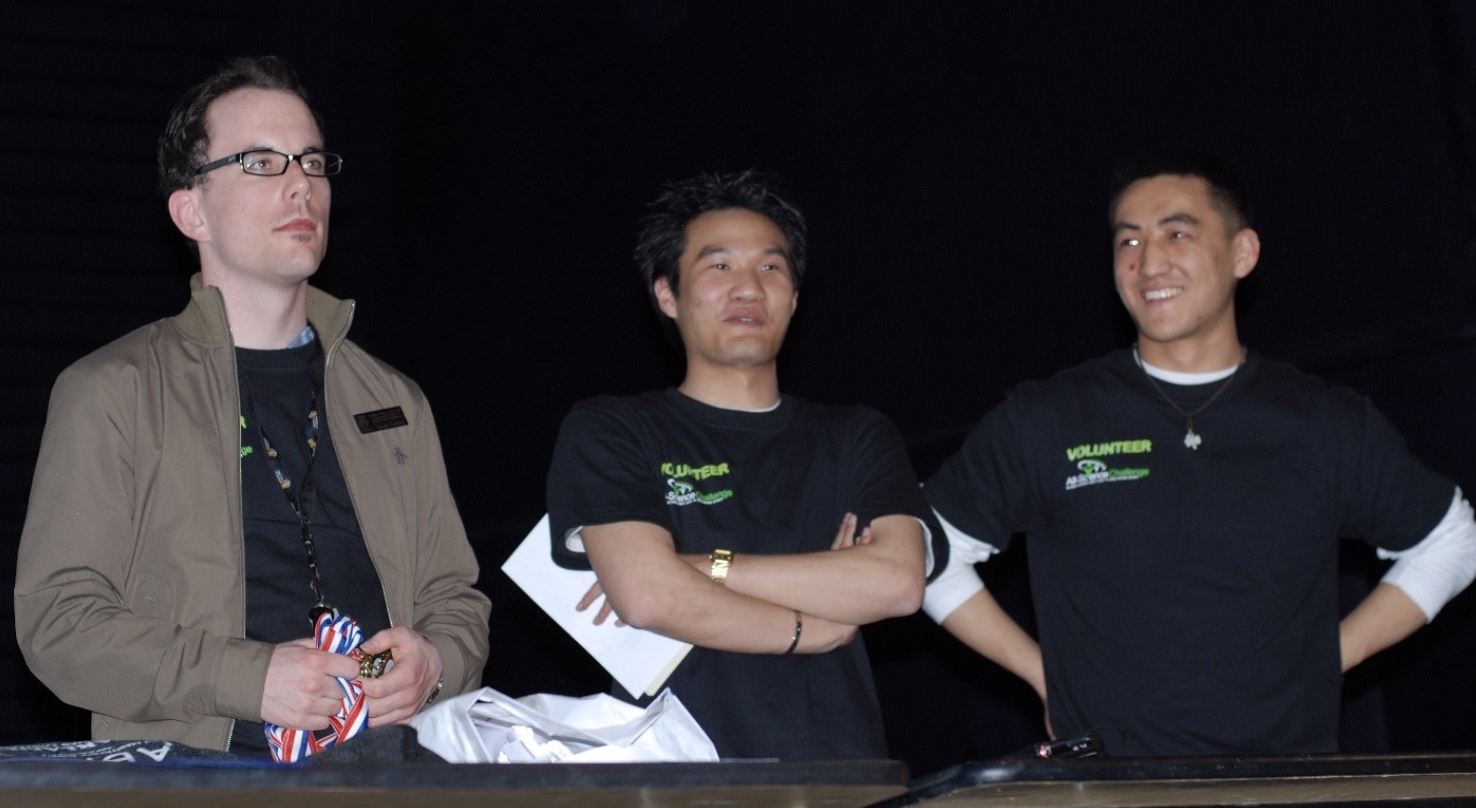Joseph Bardsley’s Story

Alum like Joseph Bardsley help put the “A” in STEM + A = STEAM
Why would a guy with a degree in journalism and a career in the arts volunteer with an organization like Let’s Talk Science? Turns out he fit in perfectly!
Joseph wasn’t a typical Let’s Talk Science Outreach site volunteer and coordinator when he joined the team at the University of Calgary in 2008. For one, he was working full time in a non-STEM career in communications and fundraising. And while he may not have seemed like a natural fit at first glance, according to Joseph, the fundamental characteristic required to find joy in science outreach is simple.
“It’s curiosity,” he says. “And I think that the underlying commonality between the arts and science really is being curious about people, regarding information critically and thoughtfully, and being able to translate often complicated information or ideas into something that anyone can understand.”
Joseph spent five years as a site coordinator at the University of Calgary under the able leadership of (then) faculty advisor Dr. Wendy Hutchins. He was part of the team along with Peter Kublik, Yuan Zhang, Andrew Ah-Seng and Michael Ji that developed the site’s first Let’s Talk Science Challenge (LTSC) in 2008. During that time, Joseph worked for the Graduate Student Association and at Theatre Calgary.
“Thinking back,” says Joseph, “It was kind of unusual that I wasn’t a student but there were no difficulties with that. It was just a different perspective. I got involved in outreach with Let’s Talk Science because my friends were doing it, I liked doing it and it was fun. And I felt really valued.”
Peter Kublik recalls that the University of Calgary’s Let's Talk Science Challenge steering committee members shared a love of science education and outreach, which was a starting point for them to then bring our own unique talents to the table. “Joe's education and training allowed him to demonstrate skills which were unique amongst our cohort and sorely needed. It didn't take long for us to realize the value of his expertise in communications and relationship management,” says Peter. “On top of his contributions to the STEM aspects of the event, Joe was our media liaison, our marketing manager, and our project coordinator. Joe's talent for communication elevated the event in ways I would never have thought to explore. It is impossible to overstate the importance of Joe's contribution in the planning and execution of the LTSC events through the years.”
Joseph also shared his talents with staff at the Let’s Talk Science National Office, working on fundraising ideas. “I was a keen person who wanted to get involved and I saw an opportunity and people like Isabel Deslauriers and Sara Steers and Sue McKee were happy to have me. From there it was one of those things where the more you contribute, the more you get back. It really is true.”
Joseph says he gained confidence, better organizational skills and an increased awareness of the importance of thinking scientifically. These tools are put to good use in his current role as Coordinator of Music Programs at Creative BC.
“As someone who now spends a lot of time reading grant proposals, it’s all about looking at the information critically. Who is telling it to you? Why do they want you to know this? What other factors are they not telling you? It’s being able to absorb everything critically. All of that comes from thinking scientifically.”
Joseph wants to share the message that Let’s Talk Science has something to offer everyone whether they are leading or participating. “Even if you’re not planning to go into a STEM degree or a STEM career path, there is still value for you here and a benefit to the things you will learn – like thinking critically, doing your research, asking good questions, knowing that there’s no such thing as a dumb question and being passionate about something in your life. You’re learning to work as a team and solve problems and all of those are basic skills that will help you in life no matter what you do.”